18 Pearly-White Tips for Oral Health from Practicing Dentists
Here are 18 tips for taking care of oral health from practicing dentists that we sourced across the web.
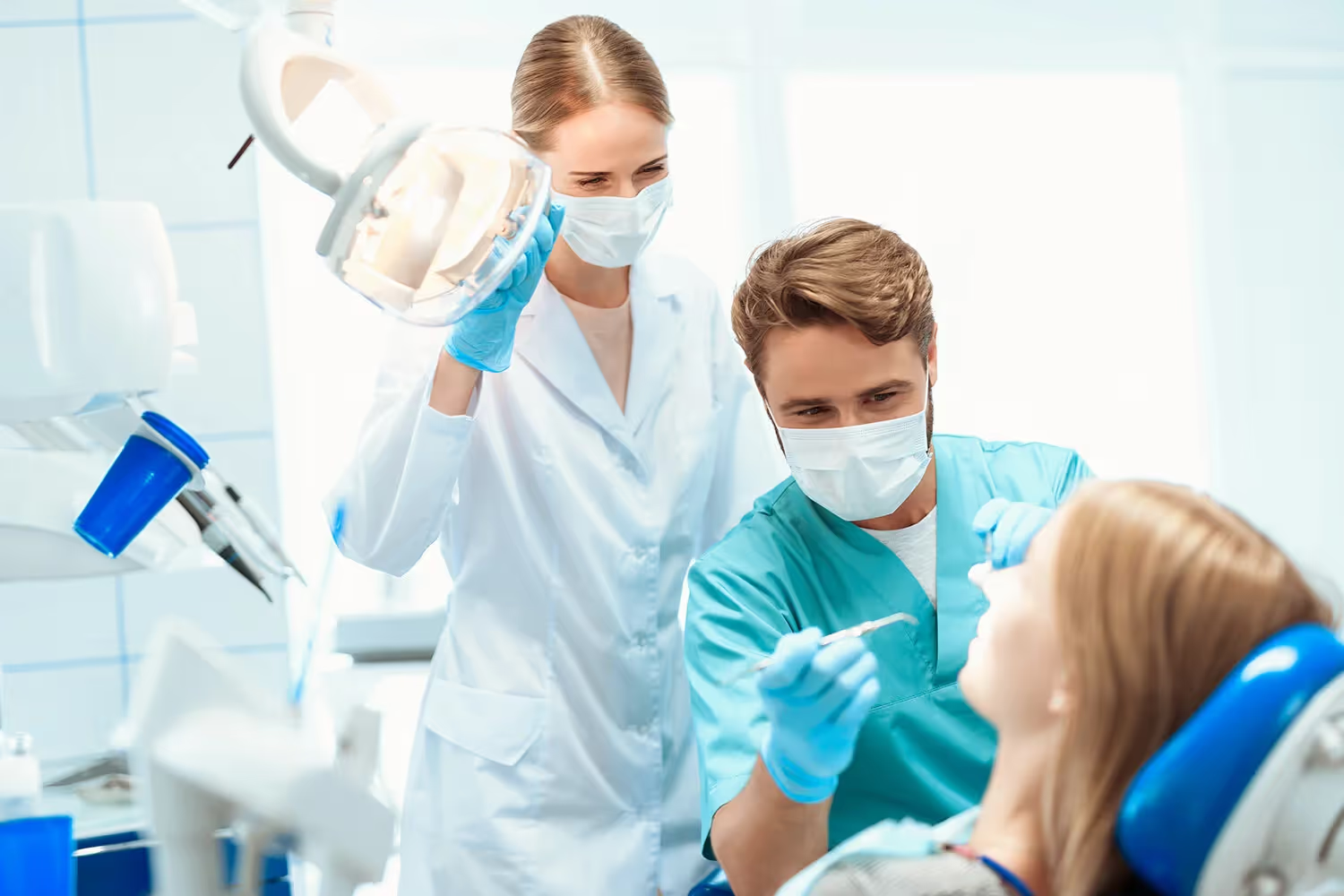
When you think about taking care of your wellness, it’s unlikely that your dental health is the first thing that comes to mind. Freshening our breath sounds more like a morning chore for getting ready, not something that contributes to our wellbeing compared to something like heart health.
But oral health is more than just brushing your teeth before you rush off to school or work. Hopefully you at least take the time to do that. After all, what’s the point if you’re just going to get coffee on your way? Have you ever taken a sip of orange juice right after brushing your teeth? Yuck. It seems easier to chew some gum instead before you interact with anyone.
It sounds like a hassle to pay attention to details that impact our dental health. It’s easier to just worry about it if we ever run into some tooth pain. But why go through the trouble of an extra visit to the dentist and a possible costly procedure if you can prevent complications?
Here are 18 tips for taking care of oral health from practicing dentists that we sourced across the web.
“Water fluoridation has proved to be a safe and cost-effective way to reduce dental caries (cavities).” Reviewed by Christine Gupta, MD
Water in general is a great mouth cleaner since it washes away food and residue that bacteria eat. When the bacteria in your mouth consume sugars, they produce acid that wears away enamel and causes cavities.
But water with fluoride is even better since fluoride reduces tooth decay by 20% to 40%. This mineral is typically in local tap water and strengthens your teeth.
“Use of a fluoridated toothpaste is very beneficial for tooth decay.” - Dr. David Okano
The mechanical action of toothbrush bristles and dental floss disrupts plaque that can lead to tooth decay and gum disease.
For toothpaste to also prevent decay, it needs to contain fluoride. This is because it reduces the demineralization process, the first stage to decay.
“Sensitive toothpaste can help when you have holes in the enamel of your teeth.” - Ryan Senft, DDS
Sensitive toothpaste has additives that protect the sensitive parts of your teeth. Dentin is the layer under the enamel of your teeth that is sensitive to touch and temperatures. When the enamel wears away, it exposes dentin.
But sensitive toothpaste has more potassium nitrite to help rebuild enamel so that dentin isn’t exposed. These pastes can’t help other issues such as cavities, infected roots, exposed nerves, or gum disease.
“Dental crowns are recommended when your tooth has a very large filling that exceeds the natural tooth structure.” - Medically reviewed by Sumaya Ibraheem, DDS
Crowns are necessary if you have a large filling, root canal therapy, a combination of root canal therapy and a large filling, or cosmetic reasons. Patients first receive a temporary crown while the permanent crown gets prepared.
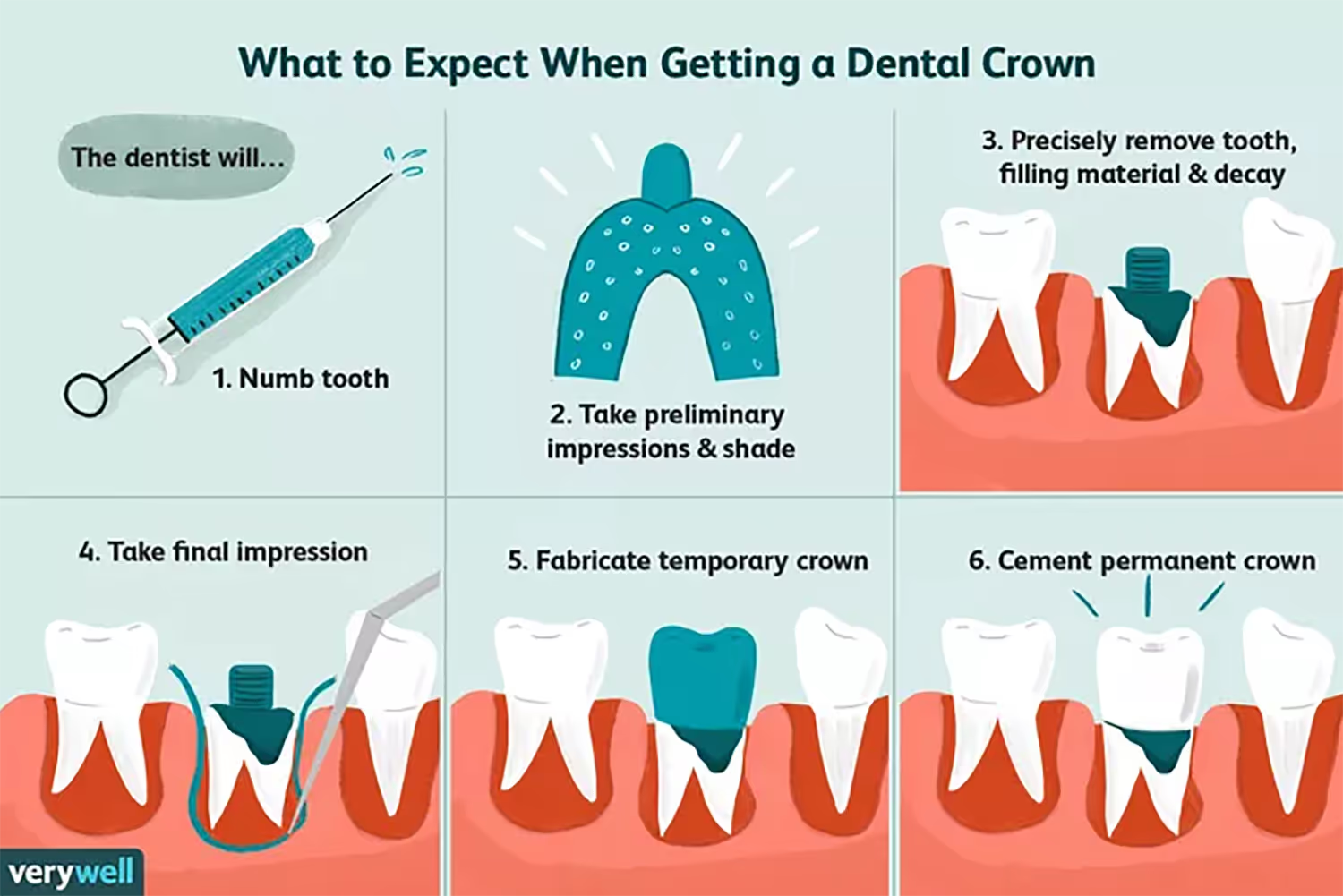
A temporary crown acts as a barrier to keep your prepared tooth in place so that it doesn’t shift. It also protects exposed dentin until the permanent crown is ready.
“You have to floss. It’s the most effective way to remove the material between teeth that toothbrushes can’t reach.” - Timothy Hempton, DDS
Less than half of people who floss do it daily. One-third of Americans don’t floss at all, other than at the dentist. But the American Dental Association recommends flossing once per day. It’s best to do this at night to remove plaque.
While flossing doesn’t prevent cavities, it can help prevent gingivitis. This is inflammation of the gums caused by bacteria between the teeth at the gum line. It’s a more serious oral health threat than cavities since the inflammation can increase the risk of periodontitis. This condition is the loss of bone that holds the teeth in place.
One main reason that flossing isn’t effective is that 90% of patients don’t do it right. A clean area of floss needs pulled into a “C” shape around the base of each tooth, then pulled up against the tooth. This then needs repeating. It can take someone ten minutes or more to properly do it, which is why patients don’t use the proper technique.
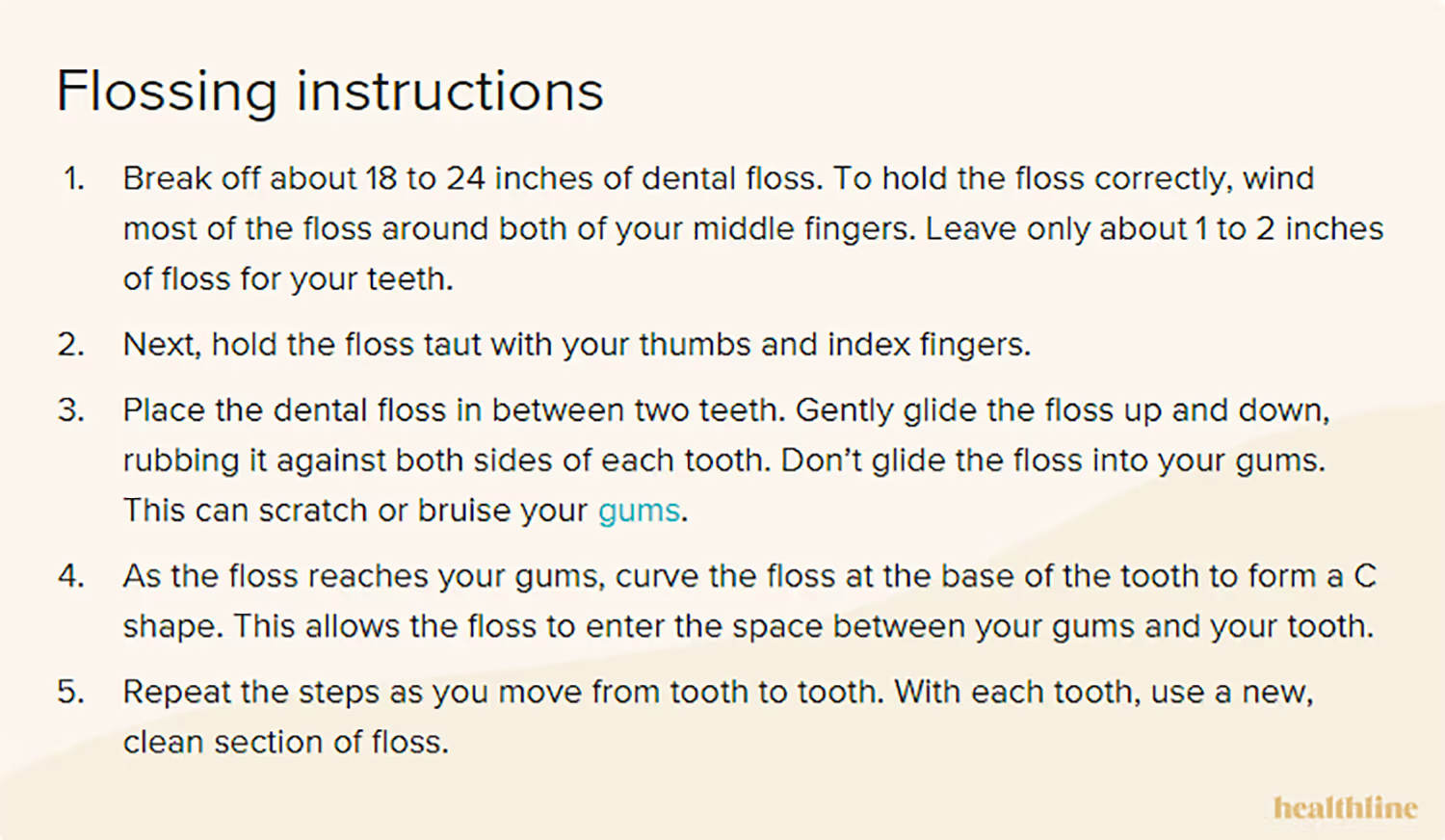
“Mouth rinses with fluoride can also help ward off tooth decay.” - John M. Chaves, DDS
It’s unlikely that not using mouthwash will be detrimental to oral health. But there are benefits to different types of rinses depending on your dental issues. There are five different kinds of mouthwash:
- Desensitizing
- Anti-plaque
- Cosmetic
- Teeth whitening
- Fluoride rinse
These aren’t a substitute for brushing and flossing, and not all of these will fight off bacteria. It’s important to talk to your dentist about which kind is best for you.
As a general guideline from dentists, children under six years old shouldn’t use mouthwash. This rule is even more necessary if the rinse contains alcohol. Children under six are more likely to swallow the mouthwash which can have harmful effects.
“Dentists and orthodontists are recommending that people brush their teeth for at least two minutes at a time and at least twice a day.” - Dr. Charles Gemmi
Dentists used to consider it sufficient to brush once per day. But more foods contain sugar and processed chemical materials, so they’ve changed their recommendation to twice per day.
People also often don’t clean their teeth long enough or with the right technique. This contributed to the recommendation change as well, as a way of increasing the chances of doing it right.
“What matters the most in oral hygiene is the quality of cleaning rather than quantity.” - Heather Kunen, DDS, MS
Brushing teeth twice per day for over two minutes is the best way to clean teeth. This quality of brushing is better than someone who brushes five times per day for shorter increments.
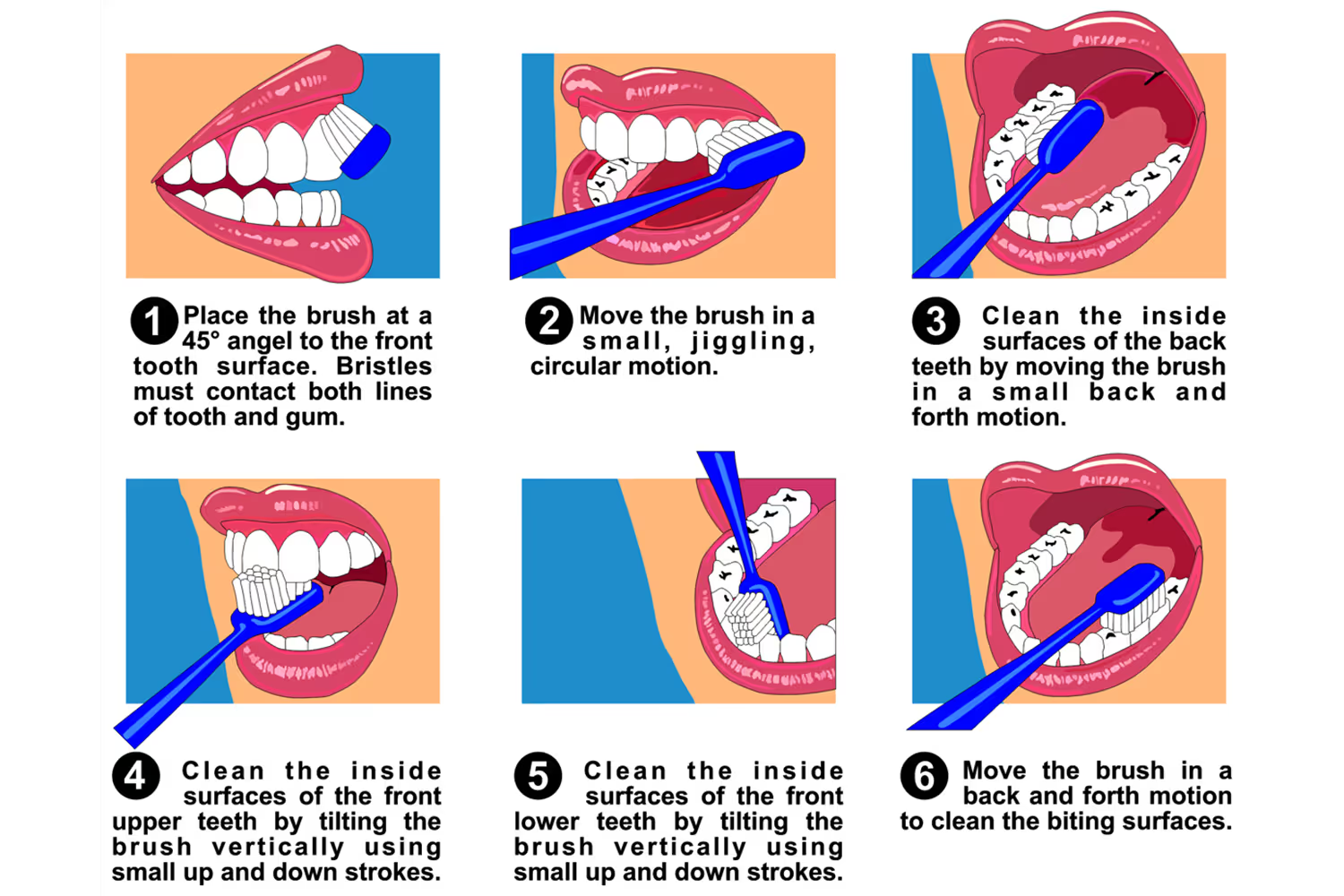
A clean mouth isn’t only good for oral health. It’s also a great way to stop bacteria from getting into our bloodstream which can pose other health risks, such as heart health. Disease-causing pathogens from the mouth can lead to inflammation once they’re in the bloodstream.
“Should you brush before or after breakfast? Either is fine, but before breakfast is probably best.” - Medically reviewed by Dr. Gemma Wheeler
It’s common to assume that you should brush your teeth after breakfast to get rid of the food in your mouth. But depending on how soon you clean your mouth after eating, you may damage your teeth.
During the night, plaque builds up since there’s less saliva. If you brush before eating, you remove the plaque so that the plaque bacteria can’t use the sugars from your food.
If you wait until after eating, the plaque uses the sugars as its fuel. The bacteria then produce acid which attacks and breaks down enamel. Having something acidic like orange juice has an impact on this, too. Cleaning right away when the mouth is most acidic can potentially cause brushing away weakened enamel. This allows acid to get even deeper.
Dentists recommend waiting 30 minutes after having acidic foods or drinks, or brush before.
“Your toothbrush should be replaced every 12 to 16 weeks.” - Medically reviewed by Christine Frank, DDS
Not replacing your toothbrush when it needs to be can cause dental issues and spread infection. If you follow the guidelines for cleaning twice per day for two minutes each, you’d need a new toothbrush every three to four months.
The bristles will start to fall out or become twisted after around that long. When this happens, they can’t effectively brush aside food and plaque. Without properly removing plaque, there’s a greater risk for gum disease and tooth decay.
“A soft toothbrush may take a little time to get used to but it is much better for your oral health in the long run.” - Dr. Gary Silverstrom, DDS
Each bristle type has pros and cons. The type that’s right for you can change depending on your oral health needs at the time.
Studies have shown that soft toothbrushes are just as good at cleaning as medium or hard bristles. But the soft bristles also do less damage, especially for sensitive gums and teeth. An extra-soft brush might even be necessary if there are signs of enamel erosion.

“Children should stop using a pacifier by age 2.” - Moira Gini Groh, DDS
All non-nutritive sucking habits (such as thumb-sucking, pacifiers, or chewing toys) should stop by 36 months or younger.
Decreasing the use of a pacifier after age one is best. Otherwise, it may hinder correct swallowing patterns and tongue positions which guides jaw growth. Forceful sucking with pacifiers can also lead to crossbites or open bites as young as two years old.
“You should never attempt to pull a child’s loose tooth by yourself.” - Dr. Casey Ashmore
Pulling out a tooth can damage tissue or leave parts of the tooth in its socket. It could also damage the surrounding teeth. This would cause an infection. The roots of baby teeth dissolve, so loose teeth will fall out naturally and don’t need force.
“High sugar consumption can significantly impact a person’s dental health over time.” - Aaron Law, DDS
Consuming excessive sugar increases the risk of cavities and other oral health issues. Sugar lingers in the mouth as food for harmful bacteria which then produce acids. These acids weaken the enamel and cause cavities. A deep cavity can cause pain or sensitivity to foods.
“Be picky if it’s sticky! Sticky foods and candies are some of the worst foods for your teeth.” - Dr. Nathan Brooks, DDS
It’s harder to remove sticky candy from your teeth so it may end up staying around longer. This gives the cavity-causing bacteria food to eat and more time to weaken the enamel. There’s also a risk of pulling out fillings or crowns. Eating these candies often will break down the adhesive that holds the filling in place.
“Chewing sugar-free gum for 20 minutes after a meal helps protect your teeth and gums.” - Ania Mohelicki, DDS
To get the benefits from chewing gum, choose a sugar-free option. Non-cavity-causing sweeteners include aspartame, sorbitol, mannitol, or xylitol. Xylitol is the most effective because cavity-causing bacteria can’t feed on it and it also helps replace vital minerals.
The sticky substance of gum can remove food particles, reducing the risk for cavities. It stimulates 10 times more than the normal rate of saliva flow. Saliva helps wash away food particles and reduces acid that would weaken enamel. Some gums even harden the enamel.
Dentists may advise patients not to chew gum depending on their condition. People with jaw pain may experience more pain from continuous chewing. Patients with dentures, retainers, or braces should also avoid gum.
While this should never replace typical oral care habits, it’s a good addition. A gum that has dental benefits will have an American Dental Association Seal of Acceptance.
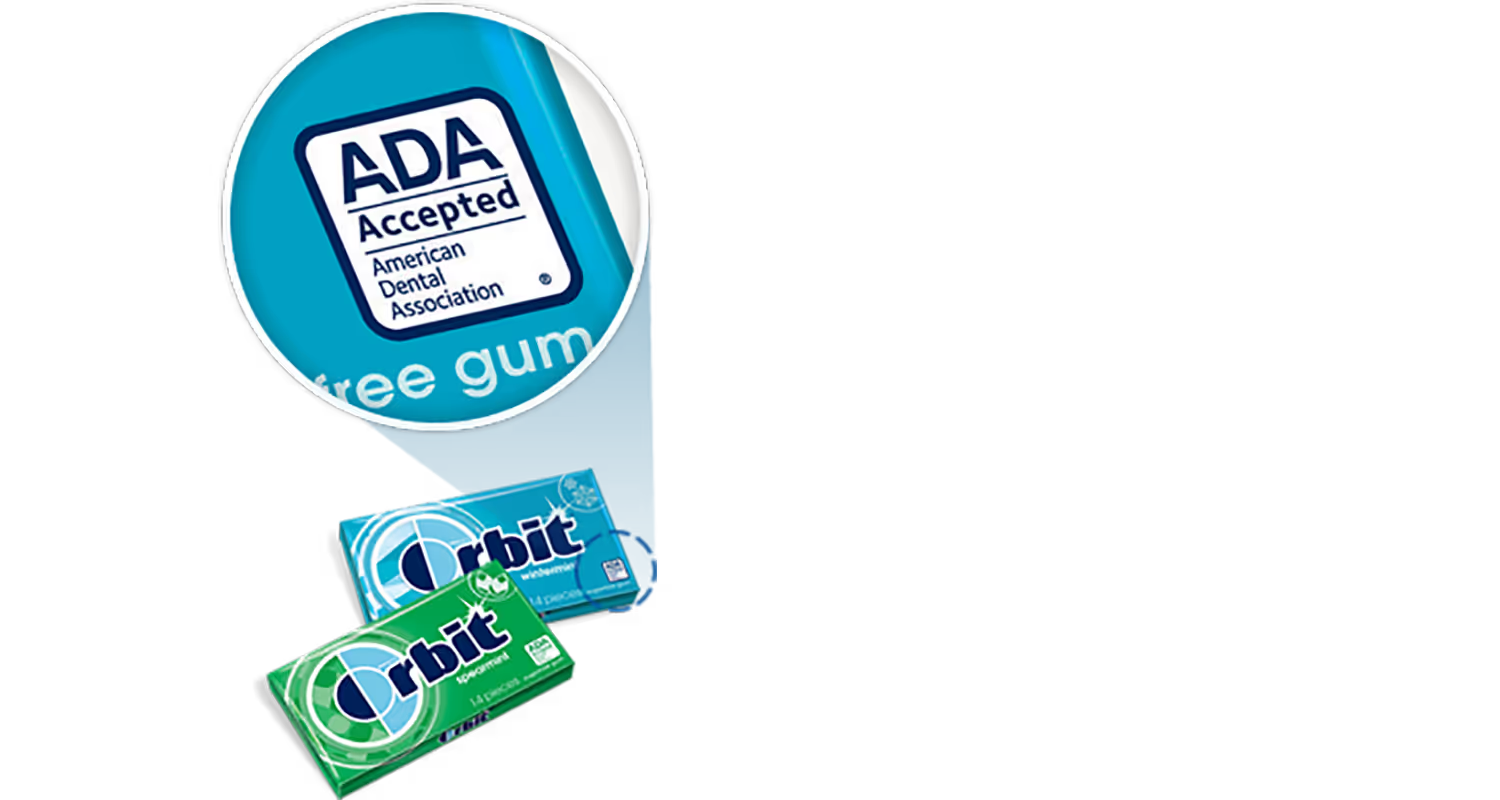
“Often, the first signs of damage from tobacco, in any form, are in the oral cavity.” - Dr. Larry Williams
Smoking negatively impacts overall health, including oral health complications:
- Gingival recession
- Periodontal disease
- Impaired healing following periodontal therapy
- Oral cancer
- Mucosal lesions
- Tooth staining
Dr. Larry Williams encourages other dentists to talk with their patients about quitting tobacco. He leads an online education course called Tobacco Policy, Pharmacotherapy, and Dentistry. This includes training opportunity information for dental professionals.
Some dentists are hesitant to approach the topic with their patients. But not bringing it up is like not addressing the elephant in the room since tobacco causes so many oral health issues. Even leaving flyers about the topic in the waiting room can help open up the conversation.
It’s also a good idea to replace a toothbrush if you or someone in your household becomes sick. You don’t want to continue using a brush if you’ve had a viral or bacterial infection, especially an oral illness such as strep throat.
“Going (to the dentist) twice a year would be on the safe side.” - Dr. Vera Tang, DD
Going to the dentist twice a year helps catch any problems early when they’re still easy and affordable to fix. But unfortunately, 42% of American adults say that they don’t go as often as they should.
People with good oral hygiene typically only need to see the dentists every six months. But there may be some exceptions, and your dentist will let you know if you should visit more often. You may need more frequent visits if:
- You’re pregnant
- You’re a cancer patient
- You’re diabetic
- You’re a smoker
- You’re a heart patient
Conclusion
It might sound difficult to squeeze in two dentist appointments each year. It’s even more work to focus on all the aspects of protecting oral health. What we eat, how and when we brush, and the kind of products we’re using all contribute to the health of our teeth.
But taking the right steps for protecting our teeth and gums prevents us from having long-term complications. If going to the dentist twice seems like a hassle, going even more because you need a filling or tooth surgery will be even worse. Plus, this is much more costly than toothpaste, floss, mouthwash, and new toothbrushes.
It’s still recommended to visit your dentist for advice on protecting your oral health. But following these tips is a great place to start.
Emphasize your product's unique features or benefits to differentiate it from competitors
In nec dictum adipiscing pharetra enim etiam scelerisque dolor purus ipsum egestas cursus vulputate arcu egestas ut eu sed mollis consectetur mattis pharetra curabitur et maecenas in mattis fames consectetur ipsum quis risus mauris aliquam ornare nisl purus at ipsum nulla accumsan consectetur vestibulum suspendisse aliquam condimentum scelerisque lacinia pellentesque vestibulum condimentum turpis ligula pharetra dictum sapien facilisis sapien at sagittis et cursus congue.
- Pharetra curabitur et maecenas in mattis fames consectetur ipsum quis risus.
- Justo urna nisi auctor consequat consectetur dolor lectus blandit.
- Eget egestas volutpat lacinia vestibulum vitae mattis hendrerit.
- Ornare elit odio tellus orci bibendum dictum id sem congue enim amet diam.
Incorporate statistics or specific numbers to highlight the effectiveness or popularity of your offering
Convallis pellentesque ullamcorper sapien sed tristique fermentum proin amet quam tincidunt feugiat vitae neque quisque odio ut pellentesque ac mauris eget lectus. Pretium arcu turpis lacus sapien sit at eu sapien duis magna nunc nibh nam non ut nibh ultrices ultrices elementum egestas enim nisl sed cursus pellentesque sit dignissim enim euismod sit et convallis sed pelis viverra quam at nisl sit pharetra enim nisl nec vestibulum posuere in volutpat sed blandit neque risus.

Use time-sensitive language to encourage immediate action, such as "Limited Time Offer
Feugiat vitae neque quisque odio ut pellentesque ac mauris eget lectus. Pretium arcu turpis lacus sapien sit at eu sapien duis magna nunc nibh nam non ut nibh ultrices ultrices elementum egestas enim nisl sed cursus pellentesque sit dignissim enim euismod sit et convallis sed pelis viverra quam at nisl sit pharetra enim nisl nec vestibulum posuere in volutpat sed blandit neque risus.
- Pharetra curabitur et maecenas in mattis fames consectetur ipsum quis risus.
- Justo urna nisi auctor consequat consectetur dolor lectus blandit.
- Eget egestas volutpat lacinia vestibulum vitae mattis hendrerit.
- Ornare elit odio tellus orci bibendum dictum id sem congue enim amet diam.
Address customer pain points directly by showing how your product solves their problems
Feugiat vitae neque quisque odio ut pellentesque ac mauris eget lectus. Pretium arcu turpis lacus sapien sit at eu sapien duis magna nunc nibh nam non ut nibh ultrices ultrices elementum egestas enim nisl sed cursus pellentesque sit dignissim enim euismod sit et convallis sed pelis viverra quam at nisl sit pharetra enim nisl nec vestibulum posuere in volutpat sed blandit neque risus.
Vel etiam vel amet aenean eget in habitasse nunc duis tellus sem turpis risus aliquam ac volutpat tellus eu faucibus ullamcorper.
Tailor titles to your ideal customer segment using phrases like "Designed for Busy Professionals
Sed pretium id nibh id sit felis vitae volutpat volutpat adipiscing at sodales neque lectus mi phasellus commodo at elit suspendisse ornare faucibus lectus purus viverra in nec aliquet commodo et sed sed nisi tempor mi pellentesque arcu viverra pretium duis enim vulputate dignissim etiam ultrices vitae neque urna proin nibh diam turpis augue lacus.


.avif)

